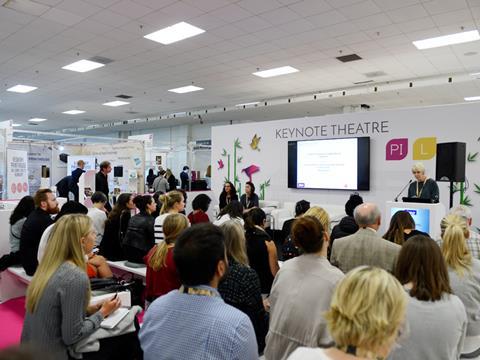
Experts from some of the world’s biggest brands, including Carlsberg, LUSH Cosmetics, and Just Eat, will come together at Packaging Innovations and Luxury Packaging London 2019 to debate the industry’s hottest topic – sustainability. With plastic no longer king of the packaging arena, the show’s headline feature will welcome an array of industry experts to discuss the alternatives to traditional plastic and take a critical view of their green credentials.
The debate will take place across both days of the event, which returns to Olympia on 11 & 12 September. Kicking off day one will be Jill Farrell, Chief Operating Officer at Zero Waste Scotland, who will discuss the Scottish Government’s Deposit Return Scheme (DRS). The DRS system has been implemented in the country to assist it in reaching its target of 70 percent recycling levels and 5 percent maximum waste to landfill by 2025. The talk will also explore how this method could be adopted by Westminster.
Plastic alternatives will then be put under the microscope as a panel, chaired by Martin Kersh, Executive Director at Foodservice Packaging Association, debate these new options and the environmental implications of using them. The carbon impact of paper solutions will be a key discussion point as many brands make the switch to bio-based materials in a bid to increase their sustainability credentials. Panellists include Pete Statham, Sustainability Manager at Carlsberg; Nick Gumery, Ethical Buyer at LUSH Cosmetics; Jonathan Ritson, Policy Analyst at Green Alliance; and Michael Lenaghan, Environmental Policy Advisor at Zero Waste Scotland.
As compostables remain largely misunderstood by consumers, materials experts Bruce Bratley, CEO & Founder of First Mile; Andy Sweetman, Chairman of BBIA; and Professor Mark Miodownik, Professor of Materials & Society at University College London, will assess whether they are helping to reduce packaging waste or causing more hidden damage than good.
Day two of the show with begin with a keynote speech from Sandy Martin, Labour Party MP for Ipswich and Shadow Minister for Waste & Recycling. He will take to the stage to discuss Labour’s perspective on the UK Government’s packaging consultation to reform the producer responsibility system.
The next session will place the circular economy at the top of the agenda as experts debate how brands can get it right at the design stage and gain an understanding of the waste management infrastructure. Experts from Just Eat, Veolia, the University of Manchester, Beauty Kitchen, WRAP, and Suntory Beverage and Food Europe will join the panel.
The Big Plastics Debate will conclude with the highly anticipated return of the Ecopack Challenge. The competition offers companies that are creating innovative and environmentally responsible products the chance to develop a packaging concept with retail giant, Marks & Spencer. The Dragons’ Den style session will see six shortlisted companies demonstrate why they should be voted best in show by the expert industry panel and the audience. The judging process will also see products tested by the OPRL PREP tool which assesses whether consumers can readily recycle a packaging material and how it will be sorted and recovered at UK material recovery facilities.
Paul MacDonald, Global Brand Director of Easyfairs’ Packaging Portfolio, comments: “Since the Big Plastics Debate launched at our NEC show in 2018, global brands have flocked to join our discussion on the contentious issue and share their plans to create greener packaging solutions. However, the issue still remains high on the industry’s agenda. Consumers are more concerned by the impact of packaging than ever before and regulatory bodies are increasingly demanding more sustainable packaging solutions.
“The return of the Big Plastics Debate offers us the opportunity to bring together some of the brightest minds in the industry and the brands taking leaps to improve their ethical status. With a focus on plastic alternatives this year, the debate will take the conversation in a new direction. The focus is no longer whether plastic is simply good or bad, instead it is highlighting that not all sustainable alternatives are equal and to encourage brands to consider this when choosing a green solution. It is certainly a must-attend!”










